Comprehensive Overview of Save the Rural Society’s Past Activities
Save the Rural Society” is a dynamic organization committed to addressing a range of critical issues in rural areas through various projects and initiatives. Below is a detailed overview of the organization’s key activities and accomplishments:
1. Emergency WASH Response in Nogob Zone (2022): In 2022, “Save the Rural Society” launched an emergency Water, Sanitation, and Hygiene (WASH) response in Nogob Zone, made possible by funding from UNICEF. The organization swiftly addressed WASH needs, providing clean water and improved sanitation facilities to affected communities.
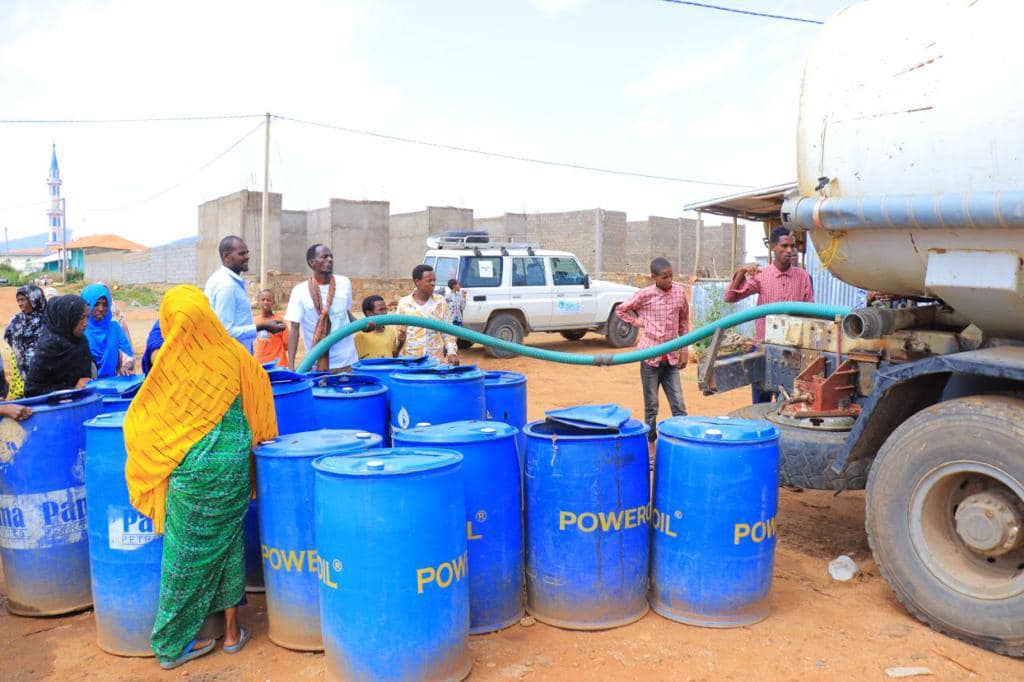
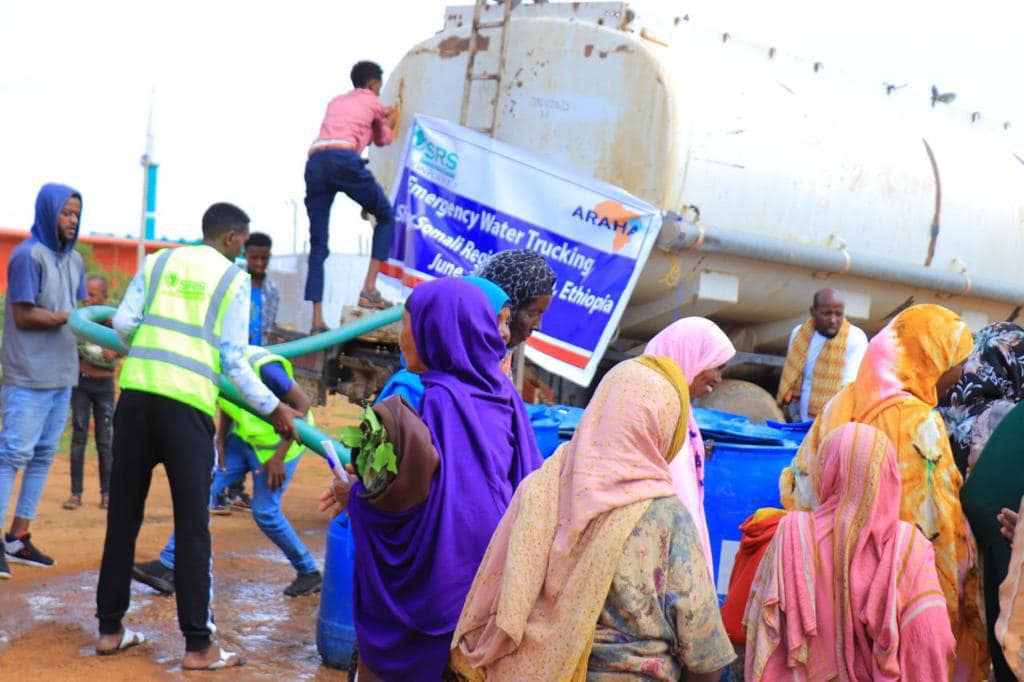
2. Sand Dam and Shallow Wells Construction in Shabeeley Wareda (2021): Funded by the American Relief Agency for Horn Africa, the organization undertook the construction of sand dams and shallow wells in Shabeeley Wareda in 2021. This initiative aimed to enhance water availability and accessibility, contributing significantly to the sustainable development of the region.

Participation of community members in the construction of the Sand Dam

After Completion of the Sand Dam

The sand dam after the first rain
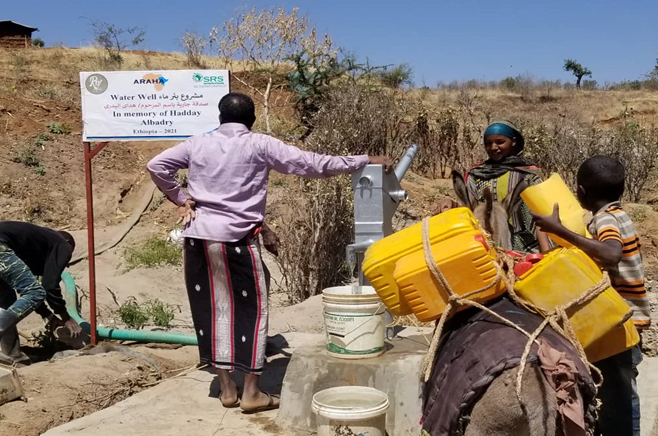
One of the Completed new hand dug wells
3. Relief Food Aid and Water Trucking for Drought-Affected Areas (2022): To combat the impact of drought, “Save the Rural Society” implemented relief food aid and water trucking projects in drought-affected areas of Shabeeley Wareda in 2022. The organization collaborated with the American Relief Agency for Horn Africa to ensure the timely provision of essential resources to vulnerable communities.
4. Primary Education Service Construction in Waaji Kebele (2009-2010): In partnership with the Embassy of Japan in Ethiopia, the organization undertook the construction of a primary education facility in Waaji Kebele between 2009 and 2010. This project reflected the organization’s commitment to empowering communities through education, fostering positive change for generations to come.
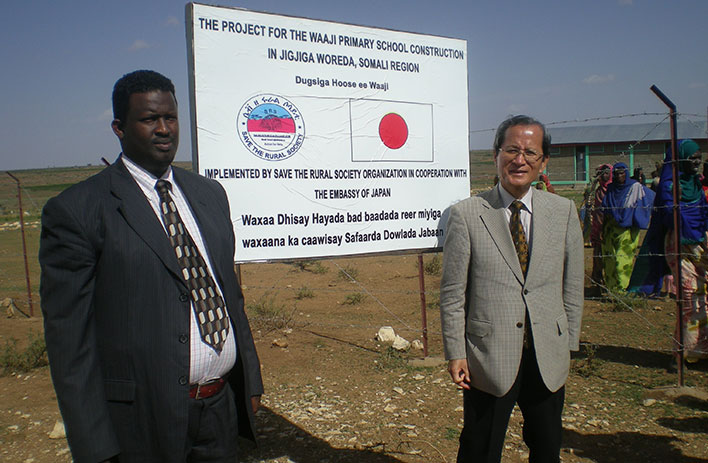 Save the Rural Society, (SRS) solicited budget for construction of Primary School Project in Waji kebele to be financed from the esteemed Embassy of Japan in Ethiopia during 2008-2009. Accordingly, the organization successfully achieved and completed 100% as per the agreed project document constructing primary school including two separated toilets for boys and girls in addition to purchase of school desks and chairs for student.
Save the Rural Society, (SRS) solicited budget for construction of Primary School Project in Waji kebele to be financed from the esteemed Embassy of Japan in Ethiopia during 2008-2009. Accordingly, the organization successfully achieved and completed 100% as per the agreed project document constructing primary school including two separated toilets for boys and girls in addition to purchase of school desks and chairs for student.
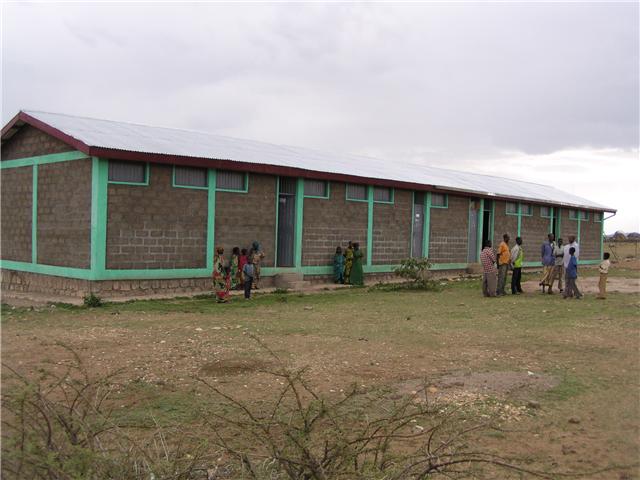
The project is envisaged to enroll from 200 to 320 students from the kebele and its environs. These would be those children that are not able to travel distant place, as most of them area from poor and lower middle level families.
5. Environmental Protection in Refugee Camps and Host Communities (2008-2009): In 2008-2009, “Save the Rural Society” collaborated with UNHCR & LWF to implement environmental protection initiatives in Awbere and Sheder Refugee camps and their surrounding host communities. This project demonstrated the organization’s dedication to ensuring sustainable and harmonious coexistence between refugees and their host communities.
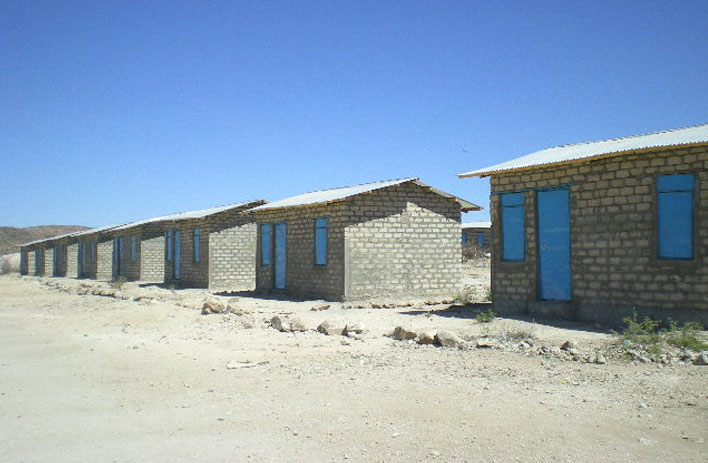
Improved Shelter Constructed in Awbare refugee camp, (Eastern Refugee camp of Ethiopia) implemented by SRS and financed by UNHCR
6. Refugee Housing Improvement and Soil Conservation (2008-2009): During the same period, the organization secured funding from UNHCR to construct improved houses for refugees. Additionally, through a partnership with the Lutheran World Federation, soil conservation efforts were carried out to safeguard the refugee camp and its vicinity, preserving the environment and its resources.
7. Empowering Women through Horticulture and Vegetable Gardening: “Save the Rural Society” launched a horticulture and vegetable gardening program for women refugees, providing them with the skills and resources needed to create sustainable livelihoods. This initiative aimed to empower women by offering them economic independence and self-sufficiency.
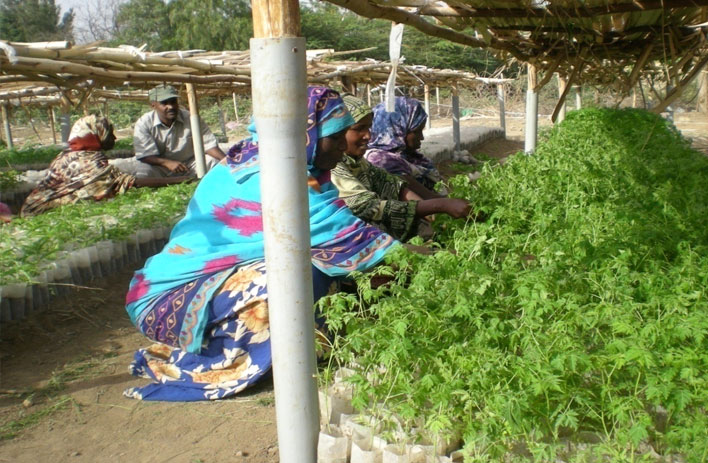
Total of 106,000 indigenous and exotic species tree seedlings raised in nursery site operation in order to distribute for refugee and local beneficiaries as well as different GO and NGO line departments operating in Awebere refugee camp and Awebere wareda too. Fencing, shedding, watering, proper management of seedlings in nursery site operation were conducted by women participant, nursery Foreman and one forestry
NB this seedling was funded by UNHCR and LWF together
8. Water Harvesting and Agricultural Strengthening (2008-2009): As part of the PCDP-World Bank Project, the organization constructed Birka structures for surface and runoff water harvesting in Harta Sheikh IDPs of Kabribayah Wareda and Gogti Kebele of Awbare Wareda. Moreover, UNHCR-supported efforts strengthened Awebere Agricultural Offices, promoting agricultural development in the region.
9. Livestock Restocking and Emergency Relief (2008-2009): Through funding from UNHCR, “Save the Rural Society” facilitated the restocking of livestock, poultry, and beehives for women refugees during 2008-2009. Additionally, an Emergency Relief Project, supported by Muslim Aid, UK, provided assistance to households affected by flood disasters.
10. Capacity Building, Training, and Youth Empowerment (2008-2009): The organization focused on capacity building and training during the years 2008-2009, enhancing the skills and knowledge of community members. Furthermore, the “Youth Initiative for Empowering Leadership and Development” (YIELD), initiated by PCI in 2009, aimed to empower young individuals to become future leaders.
Conclusion: “Save the Rural Society” stands as a beacon of hope for rural communities, working tirelessly to address multifaceted challenges through a diverse range of projects. The organization’s dedication to sustainable development, community empowerment, and collaborative partnerships reflects its unwavering commitment to creating positive and lasting change.
